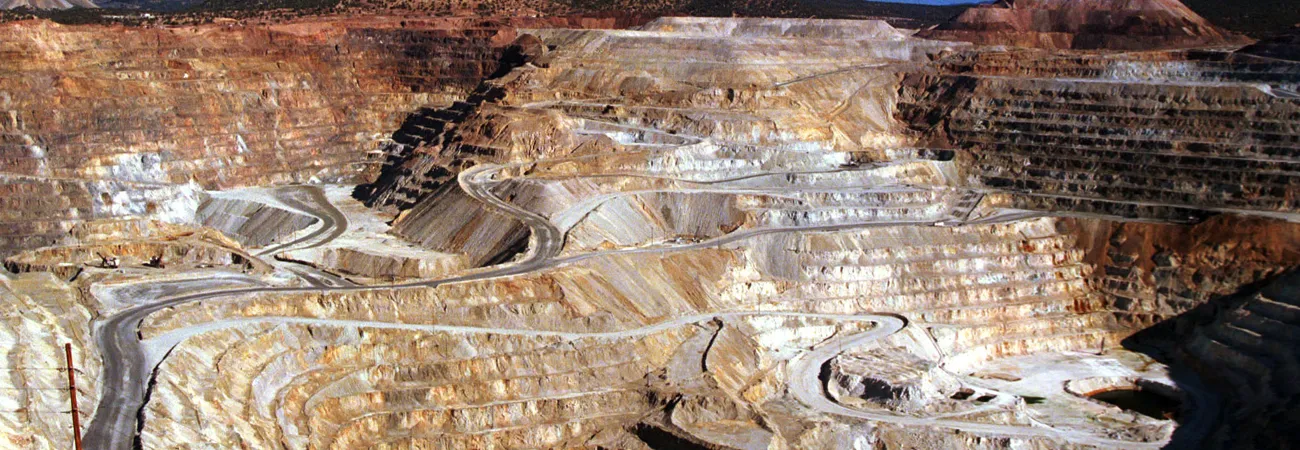i ECONOMY
The lackadaisical approach of the department concerned towards implementing the mining laws is causing a huge socio-economic and ecological loss countrywide, reports WealthPK. Talking to WealthPK, Muhammad Yaqub Shah, Principal Geo-Scientist at Islamabad-based Global Mining Company, said although a proper code of conduct is mentioned at the time of issuing a mining license, lack of its implementation allows the lessee to damage the flora and fauna of the allocated area and damage the soil quality and fertility. “A complete study is important for framing a proper strategy for the safety of ecology and economic stability during a mining operation. Only one study can never cover all the mining aspects because the impacts of every mining operation are different.
“It is important to overcome the ecological and financial loss across the country. By combating all these issues, not only environmental degradation will cease but sustainable mining may lead to prosperity,” he added. “Mining of multiple types is carried out in the country over different time spans like 10 years or more. So, diverse mining operations leave different impacts on the environment. Owing to some unavoidable circumstances during the mining operations, the natural life and sources are badly disturbed. “Before starting a mining operation, its impact on the surrounding areas and environment is monitored. After complete monitoring, mitigation/rehabilitation plan is prepared to avoid environmental loss, migration of humans and wildlife, and loss of economic activities.
“So, a few different things are focused like impact, mitigation, and rehabilitation. All these aspects must be framed according to the international parameters fixed for such issues. The most important of them is that the ecology should not be disturbed at any cost. If it happens, it must be restored. “Same in the way, if mining is done in any area with glaciers or water sources, water should not be contaminated. If it happens, precautionary measures must be taken to keep it clean and there should not be any toxicity of any kind.”
Use of explosives and chemicals is the most common aspect of mining operations. Regular blasting scares the wildlife to leave the area, while the use of chemicals destroys the water sources and flora. The rehabilitation of all these features is called mitigation. But the period between mitigation and rehabilitation is too dangerous. Sometimes, in the vicinities of mining operations, people migrate due to air/water pollution or other health hazards. It is a part of the code of conduct that everything, including the flora, fauna, water sources, and environmental aspects, should be restored. Globally, all mine owners are bound to completely restore the area in all concerns.
The restoration may take 10 years or more, but the lessees are bound to fulfill their social responsibility. Sometimes, it also happens that after the rehabilitation of ecology and all other aspects, an area becomes more beautiful than before, the weather becomes pleasant and sometimes becomes a tourist spot as well. Talking to WealthPK, Dr. Sobia Rose, a research economist at the Pakistan Institute of Development Economics (PIDE), said, “Environmental Impact Assessment (EIA) is mostly not performed in Pakistan. In almost every industry, whether it belongs to the government or the private sector, EIA is not focused. The projects are approved but environmental feasibility is the most neglected feature.”
She said, “Government officials are not taking the environmental issues seriously. Commonly, these are taken as a luxury, not a necessity. But no voice is ever raised on it. In economics, there is a concept that no resource should be free. Nobody is ready to pay for a healthy environment. If you are emitting a certain amount of CO₂ in the environment, you should pay for that. But we have no mechanism related to it.”
“Mining is done on a large scale in Pakistan but it can’t be called a responsible activity because environmental impact is not considered. In every province, minerals are extracted but no method is adopted to avoid environmental pollution. It is always compromised. Unfortunately, in Pakistan, the ecology is being disturbed at a horrifying level in the absence of implementation of law concerning rehabilitation and conservation.”
Quoting the example of coal mining, she said Pakistan is a developing country and to fulfill most of its energy needs, coal mining is done. In 2018, coal consumption increased by 60% (due to domestic and industrial uses) but unfortunately, no proper step was taken to make it environment-friendly. Use of green technologies must be introduced for sustainable mining.
Furthermore, she opined that it is a fact that exploration and extraction of mineral sources bring socio-economic prosperity but it comes at the cost of disruption of habitat, air and water pollution, and displacement of local communities. Globally, the private sector pays for a safe environment but this kind of thing never happened in Pakistan. The main cause is the lack of knowledge and awareness.
“The last mining policy was developed in 2013, which needs to be updated with more emphasis on the environmental aspects. In this policy, it must be mentioned clearly for the miner to submit a proper feasibility report to combat the adverse effects of mining on the environment, waste disposal, effluent treatment, water bodies’ protection, and land reclamation and rehabilitation”. She emphasized the launch of an awareness campaign concerning the sensitivity of this issue.
Credit: Independent News Pakistan (INP)









